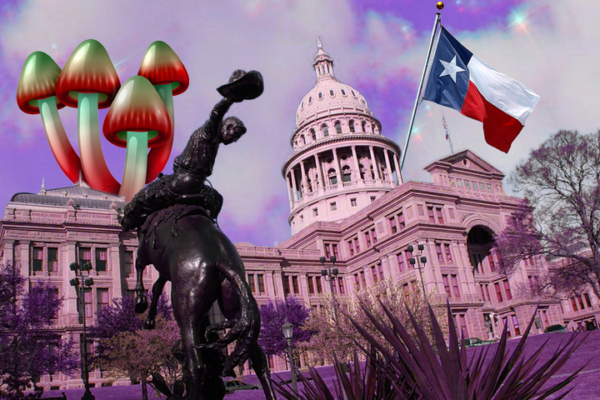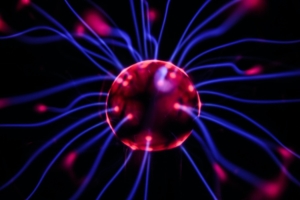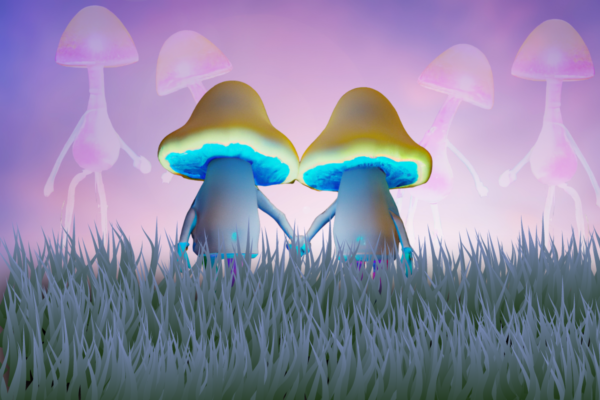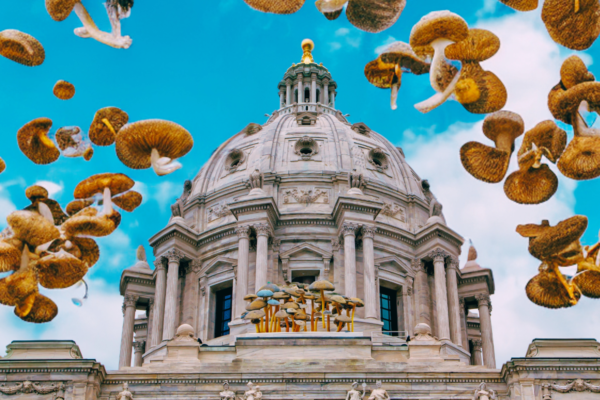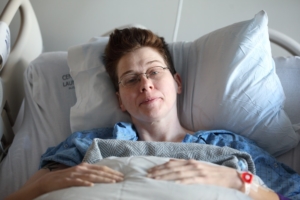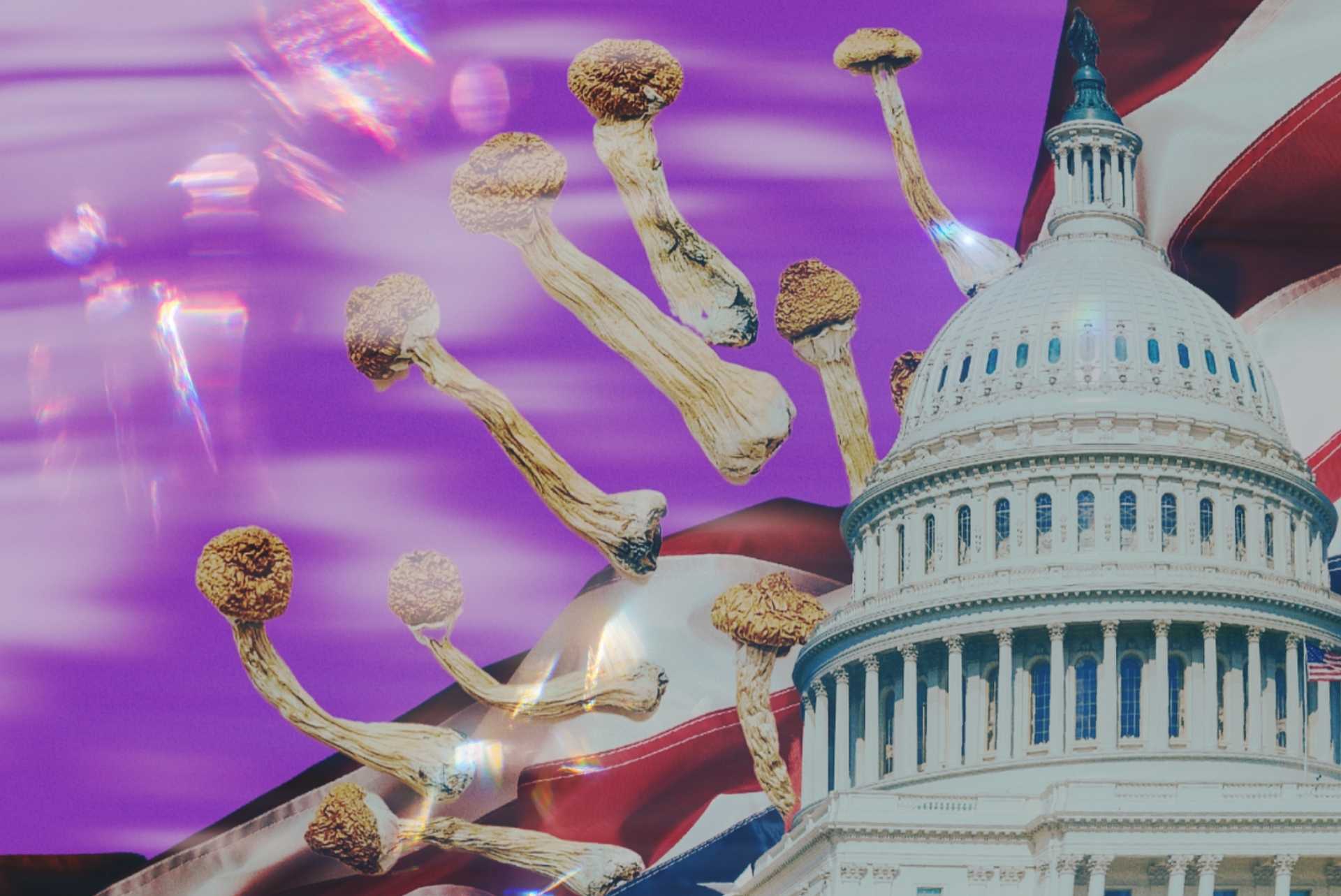
Psychedelic policy continues to populate state legislatures throughout the US in 2023. This week was no different, as multiple states passed or put forward legislation tackling psychedelic research along with larger conversations about drugs and law enforcement. On the research side of things, studies show evidence that bad trips may be beneficial to mental health and that even a single dose of psychedelics could lead to lasting shifts in beliefs concerning non-material things or supernatural forces.
Oklahoma bill passes, championing increased study of psychedelic mushrooms
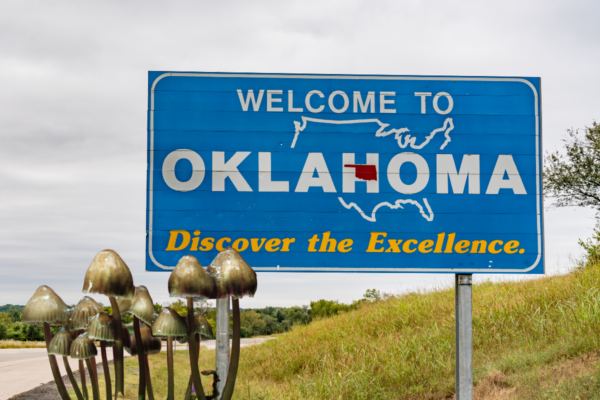
In response to a wave of recent scientific evidence, Oklahoma State Rep. Daniel Pae has stated that he wants to allow research facilities to investigate possible treatments related to psychedelic therapies.
The legislation cleared the chamber in a 66-32 vote last Thursday, about a month after the measure advanced through committee. It now heads to the Senate for consideration.
Prior to passing the bill, members adopted an amendment to strike the title, which is a typical legislative mechanism that removes the description at the top of the bill, technically putting it out of compliance with the state Constitution and requiring lawmakers to revisit it. It’s a way of advancing the legislation while recognizing that further changes are needed before a bill is enacted.
As revised in a House committee, the proposal calls for the establishment of a pilot program that would let universities as well as research facilities that contract with Oklahoma institutions of higher education carry out studies into psilocybin and psilocyn.
But while the bill no longer couples research with decriminalization, people who face prosecution over psilocybin possession would be afforded an affirmative defense if they can “demonstrate by clear and convincing evidence” that they have a medical condition that falls under the list of study subjects like PTSD or chronic pain.
“This subsection shall not be understood to be the decriminalization of psilocybin or psilocyn,” the bill states.
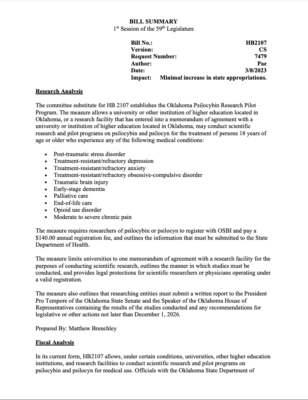
Under the legislation, researchers would need to study the “therapeutic efficacy” of psilocybin for the listed conditions, review of the existing scientific literature and also examine the “science of cultivation, synthesis, extraction, and processing of psilocybin and psilocyn as well as the fungi, yeasts, and other naturally occurring source organisms of these molecules.”
Researchers and people participating in the psychedelics pilot program would be protected against prosecution.
“Researching entities shall submit a written report to the President Pro Tempore of the Oklahoma State Senate and the Speaker of the Oklahoma House of Representatives containing the results of the studies conducted under this section and any recommendations for legislative or other actions not later than December 1, 2026,” it continues.
The legislation that Pae sponsored last session passed the House and made it through a Senate committee, where it was amended to exclude decriminalization, but it did not advance through the full chamber.
“Allowing the outstanding research facilities in our state to conduct trials on psilocybin and psilocin could lead to new information that could save the lives of Oklahoma’s Veterans,” said Pae.
Texas and Vermont also show intent for psychedelic research and law enforcement reform
Texas has demonstrated its dedication to psychedelic policy reform as lawmakers have filed three groundbreaking bills.
HB 4288, sponsored by Representative Richard Peña Raymond (D), further amends the existing psychedelics law. This bill requires the state to team up with Baylor College of Medicine and a military-focused medical center in order to study potential medicinal benefits from psilocybin, MDMA, and ketamine for veterans as well as other identified individuals. Additionally, this bill permits licensed facilities providing ketamine-related mental health services within Texas to partake in such research.
To ensure the study’s success, both the commission and college should introduce standardized procedures to be followed by every researcher or research organization involved. Additionally, they will extend the initial deadline for presenting their conclusions and recommendations until December 1st of 2026 – a two-year extension from its original date.
House Bill 4423, sponsored by Representative Josey Garcia (D), strives to establish a Psilocybin Research Advisory Council in order to offer advice and consultation on psilocybin research and treatment. This council must be appointed by the executive commissioner of health and human services no later than December 31st 2023, with members that range from physicians with federal licenses for psychedelic studies, military veterans, law enforcement officers, psychedelics researchers plus representatives from various state agencies.
The council would establish a grant program to sponsor Phase 1, 2, and 3 clinical trials that utilize whole mushroom psilocybin to treat conditions such as PTSD, long COVID issues, depression and anxiety. This yearly three-year initiative will focus on veterans ,first responders , frontline healthcare workers, as well as people from underprivileged communities for its funding research endeavors.
Each year, the council would provide advice to the legislature on psychedelic-assisted therapy.
HB 4561, sponsored by Representative Julie Johnson (D) would create a new Alternative Mental Health Therapy Research Consortium devoted to examining the efficacy of using psychedelic drugs and ketamine for mental health care – particularly for veterans in Texas. The consortium would also allocate grants to establish ketamine clinics across our state, as well as vouchers that help veterans receive this therapy. This bill is an exceptional chance to expand access to alternative treatments with proven results – while supporting those who have served us so valiantly.
Executively appointed members to the health and human services commission should be composed of: academics that specialize in psychedelic therapy, agents from various health-related institutions providing ketamine alternative mental health therapies, counselors who are devoted to treating veterans, advocates for psychedelics groups and other related professionals.
The proposed legislation would mandate the commission to investigate the effectiveness of utilizing substances like ibogaine and 5-MeO-DMT in aiding veterans who have PTSD, depression, or mild traumatic brain injury. This consortium is obligated to submit its discoveries along with any potential recommendations for legislators by December 1st, 2024.
See also: Texas Shows Commitment To Psychedelic Policy Reform As Lawmakers File 3 New Bills
But let’s not forget about Vermont. Four major drug reform bills have been presented before the Vermont State Legislature with the intention of decriminalizing simple possession of all drugs, bolstering harm reduction initiatives, eliminating criminal repercussions for possessing and selling psilocybin as well as decriminalizing certain psychedelic plants and fungi.
See also:Vermont Legislators file 4 bills that would legalize psychedelics and decriminalize all drugs
New study shows challenging psychedelic trips may be especially beneficial for mental health
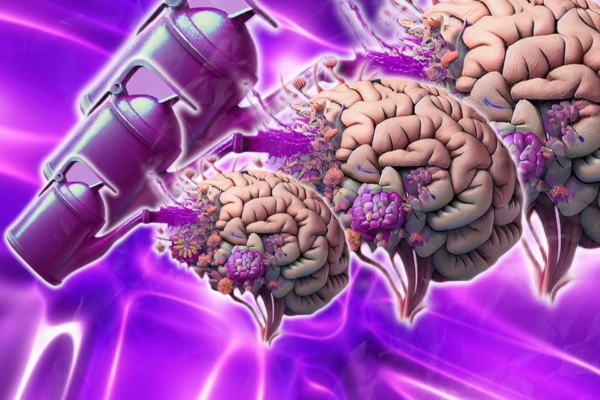
Maybe there really is no such thing as a ‘bad trip’!
A new study suggests that challenging and mystical psychedelic experiences may be connected to improved mental health outcomes.
The research was published in the Journal of Affective Disorders and reviewed survey data from almost 1,000 respondents regarding their personal experiences with psychedelics.
The data suggests a connection between the intensity of mystical or insightful psychedelic experiences and reported improvements in mental health outcomes such as anxiety and depression symptoms.
The analysis also showed that challenging experiences during psychedelic trips can potentially lead to beneficial mental health results even well after the difficult period has passed. These patterns were observed across all psychedelic substances, including 5-MeO-DMT, Ayahuasca, LSD, mescaline, psilocybin, and peyote.
Psychedelics becoming more interesting for addiction researchers and clinics
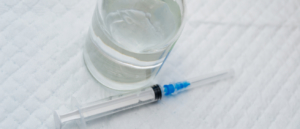
Last year a mid-stage clinical trial led by the University of Exeter found people were able to stay off alcohol for longer when they were treated with low doses of ketamine combined with psychotherapy. Participants using the therapy were more than 2.5 times more likely to stay abstinent at the end of the trial than those given a placebo, according to results published in the American Journal of Psychiatry.
Researchers reported that the experiences people described after taking ketamine suggest it can give a new perspective that may be helpful in psychological therapy. The drug induces a sense of being outside your body that may help patients take a step back and consider thoughts and emotions, they said.
“We use the drug as a way for people to access the therapy. It is potentially helpful for people who get stuck in a rut and become overwhelmed by their own problems,” said Professor Celia Morgan, principal investigator for the trial at the University of Exeter.
A US clinic, Nushama, is offering ketamine alongside psychotherapy to people with alcoholism as the fast-growing psychedelics industry moves into the treatment of addiction.
It licensed the combination therapy to treat alcohol use disorder from Awakn Life Sciences, a UK biotech that is developing psychedelic-assisted treatments for addictions such as gambling and binge eating.
The company has signed licensing deals with several third-party clinics in North America and Europe to use the therapy and has established four of its own clinics in the UK and Norway.
UC Davis Psychedelic Summit
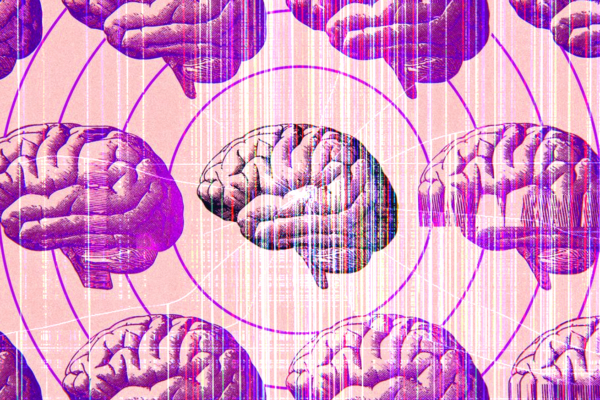
Microdosing, neuropsychedelia, and psilocybin therapy are just a few of the topics that will be discussed at a free day-long seminar and webinar at UC Davis Health in Sacramento on March 23.
The Psychedelic Summit will bring together national experts to explore what the rapidly evolving field of psychedelics and neurotherapeutics may mean for neuropsychiatric and neurodegenerative diseases. These new treatment types may hold promise for anxiety, depression, substance use, obsessive-compulsive and post-traumatic stress disorders, among others.
The Psychedelic Summit will be held at the MIND Institute Auditorium on March 23 from 9 a.m. to 5 p.m. Pacific Daylight Time. Limited seating is available in person. For in-person attendance, register here. For virtual attendance, register here.
A single dose of psychedelics may cause alterations in one’s perceptions and beliefs about the unseen world
New research featured in the prominent Journal of Psychopharmacology revealed that even a single dose of psychedelics can lead to lasting shifts in beliefs concerning non-material things or supernatural forces. The inquiry uncovered remarkable increases regarding dualism, paranormal or spiritual occurrences, and awareness—demonstrating potent effects of psychedelics as well as its potential to function therapeutically.
The research team recruited 1,874 individuals who have had encounters with some of the most widely-used psychedelics such as LSD, psilocybin mushrooms and ayahuasca.
To grasp the effect of a single psychedelic experience on an individual’s beliefs, participants answered a survey encompassing information such as demographic particulars, use of psychedelics, personality characteristics and scientific understanding and perspectives. Through factor analysis of the respondents’ feedbacks, it was found that these belief changes could be divided into five divisions:
- Dualism: an age-old philosophical concept that posits the mind and body are two distinct, yet related entities..
- Paranormal/Spirituality: Contemplating the possibility of telepathy, communicating with spirits after death, reincarnation, or foreseeing the future with their mind
- Nonmammal Consciousness: Can insects, trees and rocks experience conscious awareness?
- Mammal Consciousness: Uncovering the depths of mammal consciousness and whether or not nonmammals are able to possess conscious experience.
- Superstition: Beliefs that incidents such as breaking mirrors, meeting the number 13 and encountering black cats bring bad luck.
